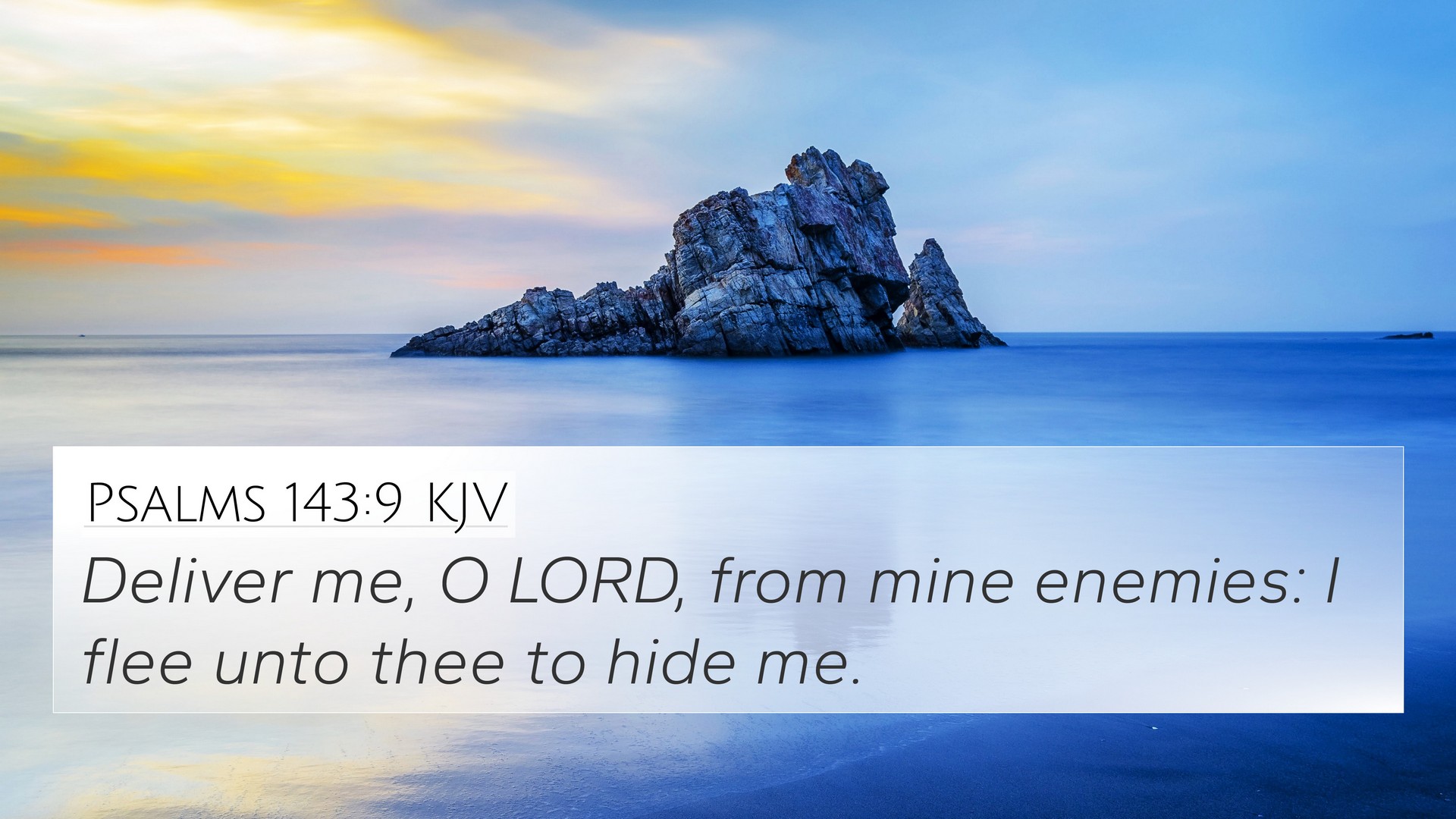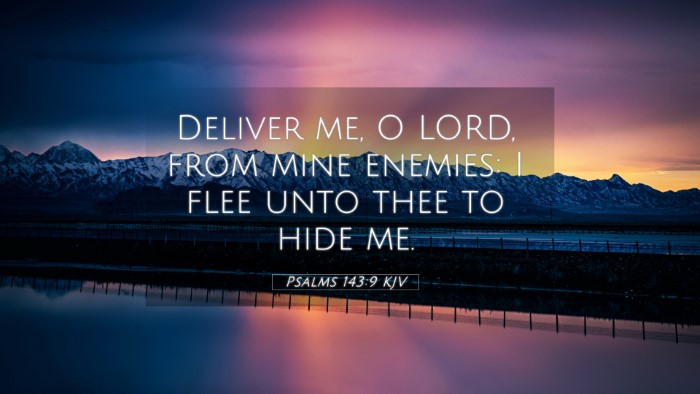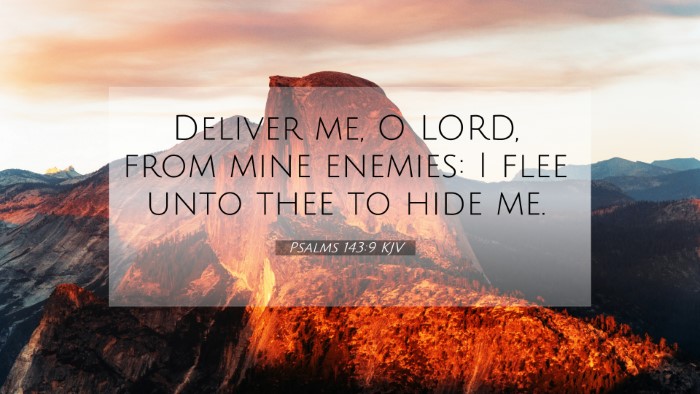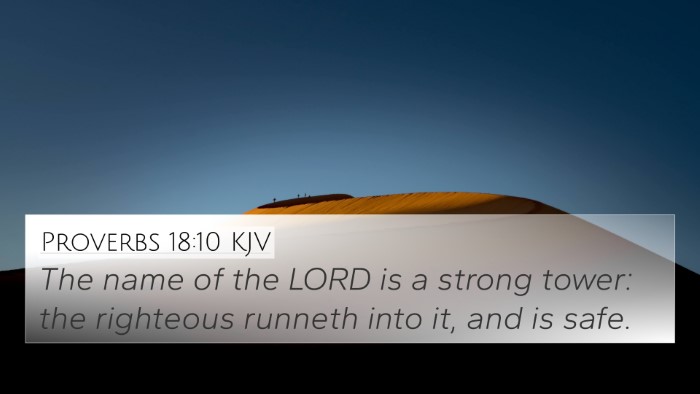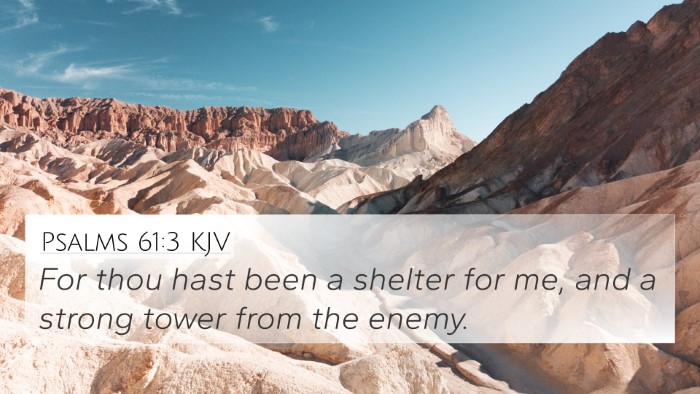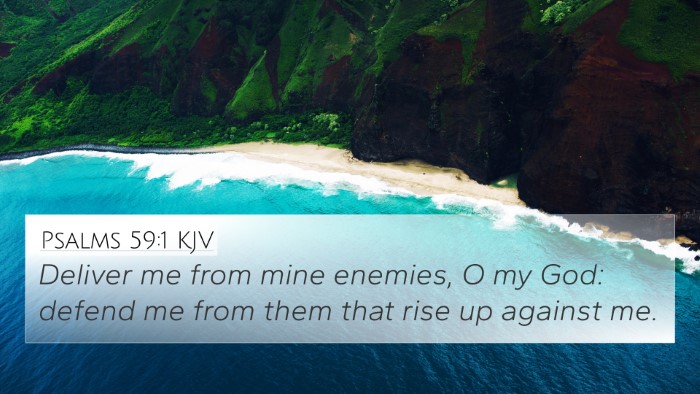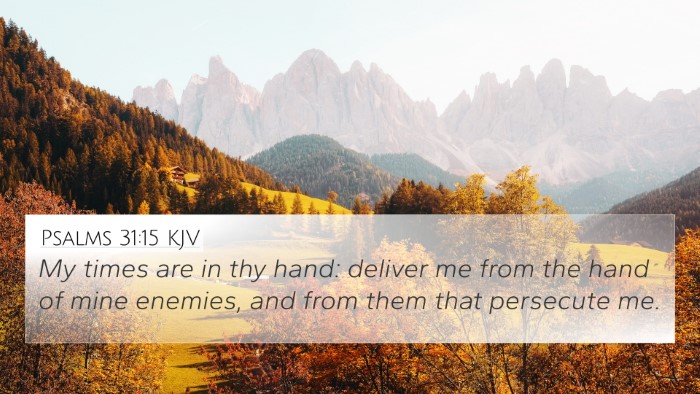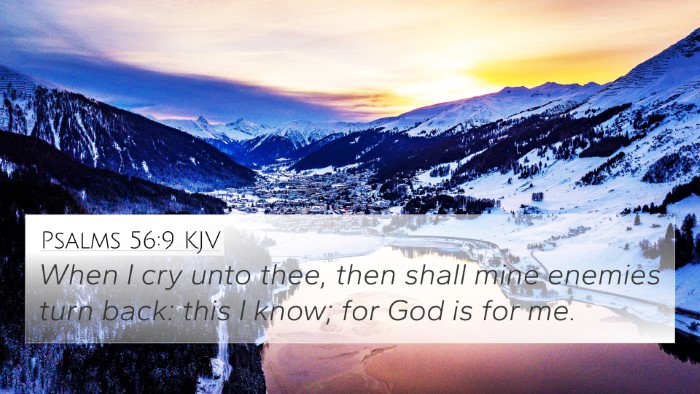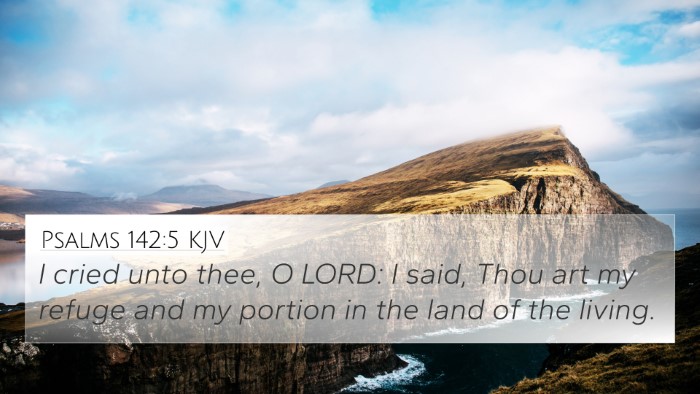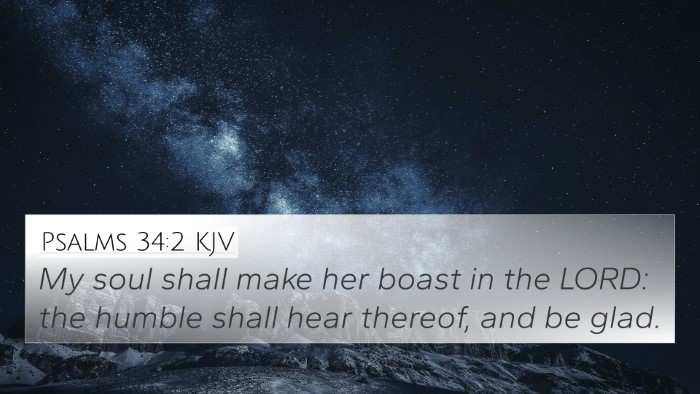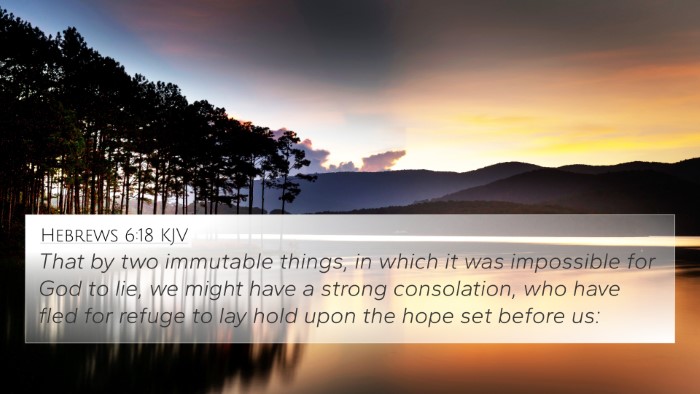Understanding Psalms 143:9
Psalms 143:9 states, "Deliver me, O Lord, from my enemies: I flee unto thee to hide me." This verse reflects a deep cry for help in times of distress, highlighting the psalmist's reliance on God as a refuge.
Meaning and Interpretation
This verse conveys themes of deliverance and dependence on God. The psalmist, traditionally attributed to David, expresses a recognition of the presence of enemies and an urgent need for divine intervention.
Key Insights from Commentaries
- Matthew Henry: Henry emphasizes the importance of seeking God in times of trouble, noting that fleeing to God demonstrates a trust in His ability to protect and deliver. He suggests that the enemies may not only be physical foes but also spiritual adversaries that come against one's soul.
- Albert Barnes: Barnes points out that this verse is a plea for assistance and reflects the broader theme of God being a stronghold for those in peril. He interprets 'enemies' as not just personal antagonists, but as all forces contrary to the believer's peace and spiritual well-being.
- Adam Clarke: Clarke elaborates on the notion of spiritual refuge, pointing out that the psalmist’s flight to God symbolizes the need for a spiritual stronghold amid trials. Clarke often notes the importance of humility in seeking God’s protection.
Bible Verse Cross-References
To gain a deeper understanding of Psalms 143:9, we can look at several related Bible verses:
- Psalms 18:2 - "The Lord is my rock, my fortress and my deliverer; my God is my rock, in whom I take refuge."
- Psalms 91:2 - "I will say of the Lord, 'He is my refuge and my fortress, my God, in whom I trust.'
- Isaiah 54:17 - "No weapon formed against you shall prosper, and every tongue which rises against you in judgment you shall condemn."
- 2 Samuel 22:2-4 - "He said: 'The Lord is my rock, my fortress and my deliverer; my God is my rock, in whom I take refuge...'"
- Psalm 34:7 - "The angel of the Lord encamps around those who fear him, and he delivers them."
- Psalm 121:1-2 - "I lift up my eyes to the hills—where does my help come from? My help comes from the Lord, the Maker of heaven and earth."
- Proverbs 18:10 - "The name of the Lord is a strong tower; the righteous run into it and are safe."
Comparative Bible Verse Analysis
When looking at Psalms 143:9 in comparison with other scriptures, a clear theme emerges regarding God's protective nature:
- The incidences in Psalms 18:2 and 2 Samuel 22:2-4 reinforce God's title as a fortress, highlighting that the psalmist is not alone in his request for deliverance.
- In Psalms 91:2, the assurance of God as a refuge repeats the sentiment expressed by the psalmist when seeking safety in the Lord.
- Proverbs 18:10 describes the power and safety found in God’s name, reflecting the necessity of calling upon Him in distress.
Thematic Connections
This verse reflects broader biblical themes such as:
- Trusting God during adversity
- The role of God as an ever-present help
- The reliance on divine strength against spiritual and physical enemies
Tools for Bible Cross-Referencing
For those eager to delve deeper into cross-referencing and thematic studies, consider using:
- Bible concordances for keyword searches.
- Bible cross-reference guides that outline connections.
- Cross-reference Bible study methods to effectively analyze relationships between verses.
- Online tools for locating and studying links between Old and New Testament texts.
Conclusion
Psalms 143:9 serves as a powerful reminder of our need for God’s protection and deliverance. By linking this verse to others throughout Scripture, believers can gain a more rounded understanding of God’s enduring faithfulness and the importance of trusting in Him amidst life's challenges.
In studying the connections between Bible verses, we foster a richer understanding of God's word and deepen our spiritual insight.
